As the world's largest nonprofit funder of Alzheimer's research, the Alzheimer's Association is committed to accelerating the global effort to eliminate Alzheimer's and all other dementia. We have undertaken a multitude of diverse research initiatives working toward methods of treatment, prevention and, ultimately, a cure. Below are just a few of these initiatives.
We fund
The Alzheimer's Association funds independent researchers worldwide through our International Research Grant Program. The Association currently has more than $405 million invested in over 1,100 active projects in 56 countries spanning six continents. Our grants have funded some of the most instrumental research in Alzheimer's and dementia science.
We fund investigations across the spectrum of dementia science, including projects that:
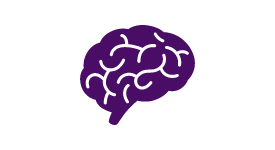
Advance our understanding of Alzheimer's disease and dementia.
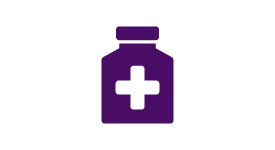
Identify new treatment strategies.
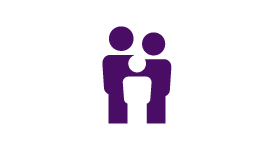
Improve care and support for people with dementia and their families.
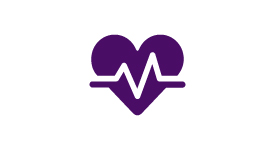
Further our knowledge of brain health and disease prevention.
Our funding is peer-reviewed by a vast international network of active scientists and carefully vetted by our Medical and Scientific Advisory Group, which includes leaders from the Alzheimer's and dementia research community with expertise ranging from bench research to clinical care to community health and support services.
In aggressive pursuit of its vision of a world without Alzheimer's®, the Alzheimer's Association made its largest-ever research investment in 2023, granting a landmark $100 million to 271 scientific investigations.
Research we have funded
We have funded many of the most exciting advances in Alzheimer's and dementia research, including the development of Pittsburgh Compound B (PiB), the first radiotracer capable of showing beta-amyloid in the living brain during a positron emission tomography (PET) scan. Identifying beta-amyloid in the living brain lets researchers determine if an experimental drug successfully decreases this hallmark Alzheimer’s protein and provides invaluable information about disease progression. Learn more about studies we have funded.
View Grant-funded Research
We connect and convene
The Alzheimer's Association hosts premier global forums for Alzheimer's and dementia scientists to connect across disciplines, address common challenges and share new discoveries.
Alzheimer's and dementia research conferences
The Alzheimer's Association International Conference® (AAIC®) is the world's largest gathering of Alzheimer's and dementia researchers and professionals.
The Tau Global Conference, hosted in partnership with Rainwater Charitable Foundation and Cure PSP, provides a forum for stakeholders from academia, industry, philanthropy and government to discuss key issues impacting tau research.
AAIC Neuroscience Next is a global conference that showcases the work of students and early career investigators in cognitive, computational, behavioral and other areas of neuroscience research. Attendees receive information on funding and networking opportunities, advancing their careers and accelerating the future of neuroscience.
Supported by the Alzheimer's Association and the National Institute on Aging (NIA), Addressing Health Disparities is a conference that explores disparities in the prevention, diagnosis and treatment of Alzheimer's and other dementia, while connecting early career and senior investigators to valuable networking and mentorship opportunities.
View more upcoming scientific conferences from the Alzheimer's Association.
Consortia and resources
The Alzheimer's Disease Neuroimaging Initiative (ADNI), a groundbreaking investigation to identify and standardize strategies for earlier diagnosis and disease monitoring. The Alzheimer's Association has awarded several million dollars in grants to support the original ADNI study and subsequent ADNI GO, ADNI 2 and ADNI 3 studies.
The European Alzheimer's Disease Neuroimaging Initiative (E-ADNI), a pilot study that grew into the World Wide Alzheimer's Disease Neuroimaging Initiative (WW-ADNI), is a global effort to foster collaboration and share knowledge among brain imaging researchers around the world.
Three peer-reviewed research journals share diverse knowledge about Alzheimer's and dementia science with the global scientific community.
The Alzheimer's Association International Society to Advance Alzheimer's Research and Treatment (ISTAART) is a professional society that convenes the Alzheimer's and dementia science community year-round, including through a network of Professional Interest Areas.
The Alzheimer's Association Business Consortium (AABC) is a consortium of small and medium-sized biotechnology, diagnostics, medical device and contract research organizations who work in areas of common interest pre-competitively to advance both the field of dementia research and the goals of its member organizations.
Webinars to share the latest advances in Alzheimer's and dementia research.
We collaborate
To help achieve our vision of a world without Alzheimer's and all other dementia, the Alzheimer's Association partners with key government, industry and academic stakeholders including:
Partnerships
- In March 2024, the Alzheimer's Association established the 2024 ARIA Workgroup consisting of experts in the fields of basic science, neuropathology, neuroradiology and bioethics to discuss growth, as well as current gaps, in knowledge regarding amyloid-related imaging abnormalities (ARIA). While the workgroup's discussions are currently ongoing, the preliminary objective is to equip the scientific and clinical community with a comprehensive understanding of the latest knowledge on ARIA, as well as recommend directions for future research.
- The Alzheimer's Disease Neuroimaging Initiative (ADNI) is a global platform that fosters collaboration and knowledge sharing among brain imaging researchers. A public-private collaboration to investigate imaging and biofluid markers that can inform treatment trials, WW-ADNI spans North America, Argentina, Australia, Canada, China, Japan, Korea, Mexico and Taiwan. The Alzheimer's Association has awarded several million dollars in grants to support the original ADNI study and subsequent ADNI GO, ADNI 2 and ADNI 3 studies, and will convene the ADNI Private Partner Scientific Board (PPSB) in 2022 with the commencement of ADNI 4.
- We also provide a global platform for ADNI researchers through Worldwide Alzheimer's Disease Neuroimaging Initiative (WW-ADNI), an public-private collaboration to investigate imaging and biofluid markers that can inform treatment trials. WW-ADNI spans North America, Argentina, Australia, Canada, China, Japan, Korea, Mexico and Taiwan.
- The National Institute on Aging (NIA) is the primary federal Alzheimer's research agency of the NIH. The Association has worked closely with the NIA since our founding in 1980, collaborating in funding and recruiting participants for several flagship clinical trials. In 2011, workgroups jointly convened by the Association and the NIA issued new Alzheimer's diagnostic guidelines and proposed a research agenda to define a new preclinical stage of the disease. In 2018, the Association and NIA convened to publish a new Research Framework that proposes the use of biomarkers to detect Alzheimer's in its earliest stages. With the NIA, we support several symposia, including the Alzheimer's Disease Genetics Global Symposium and the NIA-AA Symposium: Enabling Precision Medicine for Alzheimer's Disease Through Open Science.
- The International Alzheimer's Disease Research Portfolio (IADRP) features a publicly available database of Alzheimer's and dementia research studies, programs and initiatives under way in the United States and internationally. IADRP lets organizations coordinate funding strategies, leverage research resources, avoid duplication of efforts, and identify gaps in research funding and promising new areas of study. The IADRP is a collaborative project of the Alzheimer's Association, National Institutes of Health and other organizations that provide funding to support Alzheimer's and dementia research.
- The Association partners with the NIA on the Accelerating Medicines Partnership Alzheimer's Disease (AMP-AD) whose open-science concept has provided more than 500 new drug candidate targets for Alzheimer's disease. As a voting member of the AMP-AD steering committee, we participated actively in AMP-AD 1.0 and worked closely with other potential partners to scientifically vet, launch and fund AMP-AD 2.0, a 5-year initiative that began in fall of 2020. The Association is a steering committee member and funding partner, committing $2.69 million to AMP-AD 2.0.
- The Association team sits on the External Advisory Boards for two affiliated NIA consortia, the Target Enablement to Accelerate Therapy Development for Alzheimer's Disease (TREAT-AD) center, which provides infrastructure for developing high-quality research tools and technologies needed to validate and advance the next generation of drug targets for Alzheimer's, and the Model Organism Development & Evaluation for Late-Onset Alzheimer's Disease Consortium (MODEL-AD) center that will test new treatment approaches in translational preclinical models of Alzheimer's.
- The Institute on Methods and Protocols for Advancement of Clinical Trials in ADRD (IMPACT-AD) is a course designed by the Alzheimer's Association, the Alzheimer's Clinical Trials Consortium (ACTC) and other partners that trains early-stage investigators and those new to the field in designing and managing trials for Alzheimer's and other dementias. It seeks to promote diversity among research professionals and future principal investigators.
- The International Youth Neuroscience Association (IYNA), a youth-led global organization, promotes neuroscience as a career, publishes a journal, fosters local chapters, and engages high school students with neuroscientists. The Alzheimer's Association is piloting a series of webinars at the national level and fosters collaborations between local Association and IYNA chapters.
- The International Brain Bee (IBB) is a neuroscience competition for teenagers, with the goal of engaging them in neuroscience research and fostering interest in neuroscience careers. As a governing partner, the Alzheimer's Association works with the IBB's five founding partners to help guide the organization's programs and strategy.
- The Global Biomarker Standardization Consortium (GBSC) gathers key researchers, clinicians, and industry, regulatory and government leaders in Alzheimer's disease to achieve consensus on the best ways to standardize and validate biomarker tests for use in clinical practices around the world.
Association-led research projects
- The Alzheimer's Association U.S. Study to Protect Brain Health Through Lifestyle Intervention to Reduce Risk (U.S. POINTER) is a two-year clinical trial to evaluate whether lifestyle interventions that simultaneously target many risk factors protect cognitive function in older adults who are at increased risk for cognitive decline. U.S. POINTER is the first such study to be conducted in a large group of Americans across the country.
- World Wide FINGERS (WW-FINGERS) is an interdisciplinary network to share experiences, harmonize data and plan joint international initiatives to reduce risk of cognitive impairment or dementia.
- Building on the success of the original IDEAS study, the Alzheimer's Association leads and co-funds New IDEAS: Imaging Dementia—Evidence for Amyloid Scanning. This study will enroll at least 2,000 Hispanics/Latinos and 2,000 Blacks/African Americans, at hundreds of clinics across the U.S. The goal is to determine if using a brain amyloid PET brain scan helps clinicians provide a more accurate diagnosis and make better treatment decisions that inform or change a patient's treatment plan and improve their quality of life. New IDEAS includes a biorepository to validate new genetic and blood biological markers (biomarkers) that are applicable and accurate for a diverse, "real world" population.
- The Global Alzheimer's Association Interactive Network (GAAIN) offers unprecedented open access to more than 465,000 clinical records from researchers across four continents. By linking scientists, projects and data, GAAIN is transforming the exchange of information on an international scale.
- Longitudinal Early-Onset Alzheimer's Disease Study (LEADS) is dedicated to understanding early-onset Alzheimer's as it compares to the more common late-onset Alzheimer's variant, to move toward more effective treatments.
- Scientific leaders, including the Alzheimer's Association and representatives from more than 25 countries — with technical guidance from the WHO — formed the International Brain Study: SARS-CoV-2 Impact on Behavior and Cognition, a multidisciplinary consortium to evaluate the short- and long-term consequences of COVID-19 on the central nervous system (CNS), as well as the differences across countries.
Meeting partnerships
We advocate
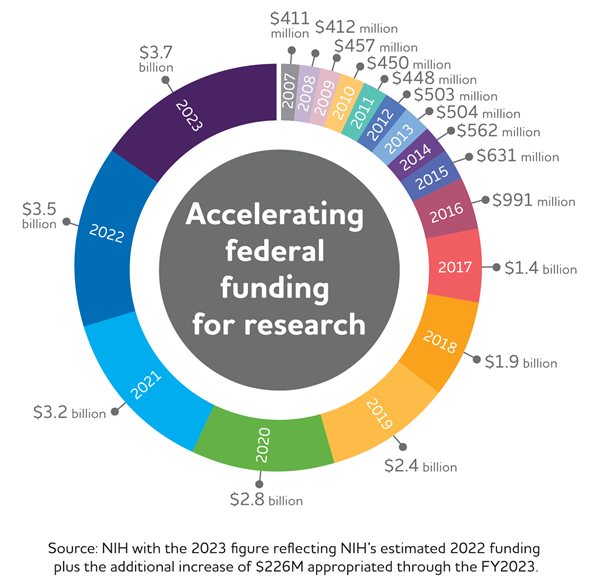 Alzheimer's is an escalating global health crisis ― with soaring prevalence and enormous costs. Sustained federal research funding is critical to address this crisis, as it leads to breakthroughs in effective treatment and prevention. The Alzheimer's Association, working with and through the Alzheimer's Impact Movement (a separately incorporated advocacy affiliate of the Association), has played a critical role in increasing federal funding for Alzheimer's and dementia research.
Alzheimer's is an escalating global health crisis ― with soaring prevalence and enormous costs. Sustained federal research funding is critical to address this crisis, as it leads to breakthroughs in effective treatment and prevention. The Alzheimer's Association, working with and through the Alzheimer's Impact Movement (a separately incorporated advocacy affiliate of the Association), has played a critical role in increasing federal funding for Alzheimer's and dementia research.
Working with bipartisan Congressional champions, the Alzheimer's Association developed the National Alzheimer's Project Act (NAPA) (P.L. 111-375), a landmark law that has led the way for additional policy victories, including the first National Plan to Address Alzheimer's Disease and the Alzheimer's Accountability Act. Enacted in 2015, the Alzheimer's Accountability Act ensures that the U.S. Congress hears directly from the National Institutes of Health (NIH) scientists to address the Alzheimer's crisis. Alzheimer's is only the third disease to receive the "professional judgment budget" designation, following cancer and HIV/AIDS.
Since the passage of NAPA, the Alzheimer's Association has worked with bipartisan congressional champions to increase federal research funding more than seven-fold. In government fiscal year 2023, research funding will be more than $3.7 billion.
To help document the importance of Alzheimer's as a national health priority, the Alzheimer's Association annually releases Alzheimer's Disease Facts and Figures, a statistical resource detailing the burden of Alzheimer's and other dementias on individuals, families, local and state governments, and the nation's health care system.
The Alzheimer's Association works to ensure that our national policy and research agendas reflect the importance of Alzheimer's disease as a leading cause of death and disability, a personally devastating illness, and an emerging health care issue for employers as well as public and private payers. Learn more about our advocacy efforts.
We seize opportunities
We work with the global research community to quickly identify issues, gaps and opportunities. Recent needs that we have addressed include:
- Increasing clinical studies participation. A major obstacle to developing new drugs is recruiting and retaining enough participants. A free, easy-to-use clinical studies matching service, Alzheimer's Association TrialMatch®, helps inform, mobilize and motivate study participants.
- Elevating the conversation about the importance of brain health. At AAIC 2017, the Alzheimer's Association announced a $20 million investment to launch the U.S. Study to Protect Brain Health Through Lifestyle Intervention to Reduce Risk (U.S. POINTER), beginning in 2018. This two-year clinical trial aims to test the ability of multidimensional lifestyle interventions to prevent cognitive decline and dementia in healthy older adults who are at increased risk. This is the first such study to test these interventions in a diverse population with varying backgrounds.
- Obtaining data showing the impact of beta-amyloid imaging on physician decision-making and patient outcomes. The Alzheimer's Association leads and co-funds the $100 million Imaging Dementia – Evidence for Amyloid Scanning (IDEAS) study to determine the clinical usefulness of beta-amyloid imaging in diagnosing Alzheimer's and other dementias. Results could lead to more accurate diagnosis and treatment.
- Adding onto a pioneering prevention study to learn more about the nuanced influences of the beta-amyloid and tau proteins in Alzheimer's. A first-of-its-kind study, the Longitudinal Evaluation of Amyloid Risk and Neurodegeneration (LEARN) study is an add-on study to the Anti-Amyloid Treatment in Asymptomatic Alzheimer's Disease (A4) study. The LEARN subcomponent of A4 will follow over time individuals who do not have elevated amyloid and determine what biological changes are related to cognitive decline, including possible later amyloid buildup and increases in tau levels, helping to shed light on the perplexing individual variation in disease progression.
- Accelerating the transition of potential therapies from laboratory testing to clinical trials. Since 2012, the Part the Cloud initiative has raised and invested more than $65 million in Alzheimer's translational research to accelerate scientific progress in Alzheimer's research by funding the most promising early phase clinical studies.
Learn more about additional milestones in Alzheimer's research.
We value diversity
At the Alzheimer's Association, we believe that diverse perspectives are critical to achieving health equity — meaning that all communities have a fair and just opportunity for early diagnosis and access to risk reduction and quality care.
The Association is committed to engaging underrepresented and underserved communities and responding with resources and education to address the
disproportionate impact of Alzheimer’s and dementia.
We put participants first
Sometimes clinical trials end early, because of safety concerns or because preliminary results indicate that the treatment being tested will not be effective. For participants who invested their time and emotional energy in these trials, this can be deeply disappointing. Worse, some participants in canceled studies found out from the news media rather than from the organization leading the research. The research community is morally if not legally obligated to communicate quickly and openly with participants when trials must be canceled.
The Alzheimer's Association and other stakeholders, including study participants, research institutions, and patient advocacy groups developed the
Participants FIRST guidelines on how to communicate with participants if a study ends early. The Association also created a new
Partnering with Research Participants Professional Interest Area (PIA) for researchers and clinical trial participants within the
Alzheimer’s Association International Society to Advance Alzheimer’s Research and Treatment (ISTAART).